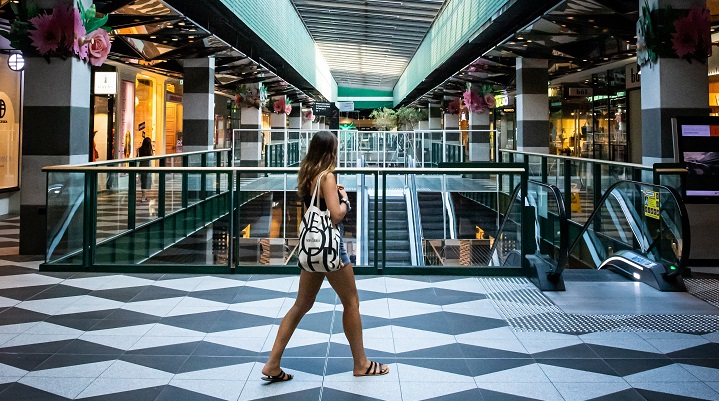In October, off the back of the sixth interest rate rise in a row, I posed a question about the war on inflation and what it would do to perennial performer JB Hi-Fi. We now know October retail sales shrank for the first time this year ending a run of nine months straight of month-to-month growth. With the Reserve Bank expected to give us another rate bump before Christmas, retailers must be frowning a little more each day. The figures aren’t in yet for the Black Friday sales, but early indi
arly indications suggest all the noise around the cost-of-living squeeze has seen plenty of shoppers react. Many of us brought forward our Christmas shopping to make the most of the discounts aplenty. That will go a small way towards preserving the remaining cash we have stashed in Aussie banks.
Most retailers will be looking at the sales they’ve made between Black Friday and Cyber Monday with mixed feelings. While they are likely to be strong, they’re also likely to cannibalise the rest of the Christmas selling period.
With higher-than-usual stock levels leading into Christmas that retailers are planning to turn over at the full freight Christmas margin, that could spell trouble.
As we all know, plans can change. But I’d go so far as to say this could be a year where we see retailers offering considerable discounts well before the Boxing Day sales roll around.
We’ve seen it happen before. In 2007, the cash rate was on an upward trajectory hitting an 11-year high of 6.75 per cent in November. The Reserve Bank opted not to increase it further in December giving Aussies a welcome Christmas reprieve. Of course, two more rate rises would follow in 2008 with the cash rate peaking at 7.25 per cent before it began to fall.
Sadly, the pre-Christmas relief wasn’t enough to help retailers with sales growth continuing to decline into the new year.
To keep the cash registers ringing, retailers had little option. Discounts were the order of the day, and consumers with any cash left in their wallets got a pre-Christmas treat at the shops.
I reckon there’s about an 85 per cent chance of that happening again this year.
But compared to 2007, we’re in slightly new territory. The Americanisation of the Australian retail sector wasn’t in full swing back then with the post-Thanksgiving tradition of Black Friday sales only being adopted locally in recent years. According to Google Trends, Black Friday sales didn’t become an Aussie thing until 2017.
With all that in mind, is it a good idea for retailers to offer deep discounts during a traditionally busy selling period?
It’s a case of being caught between a rock and a hard place. Stock in the warehouse does no one any good if it sits there too long. Retailing is about generating turnover, turning that stock into cash to go on to buy more stock to turn into more cash.
As much as we think we could hold on a bit longer – that we’ll get a bit more cash for the same stock next month, or the month after – in my experience, in these uncertain times, you should act with conviction sooner rather than later.
Use the cash you can generate to implement a revised plan that is tailored to the current economic times. It might involve some short-term disappointment, but you’ll be better off managing inventory levels more reliably than not marking down quick enough in the hope you’ll keep a more respectable margin.
The alternative is a white-knuckle ride and a few calls from your bank manager.
If everyone else starts discounting pre-Christmas, it doesn’t mean you have to. But it’s hard to swim against the market momentum unless you have a unique product.
It’s probably too late now to adjust orders, but you can replan with pragmatism and keep that cash flow strong. While margins may suffer, you can only bank money, not percentages.
Over the coming weeks, keep an eye on the behaviours of your key competitors, especially high-profile category-killing brands like old favourite JB Hi-Fi: they will set the tone if they haven’t already.
I’d like to be wrong but as it stands, all signs point to a challenging Christmas for retailers.

